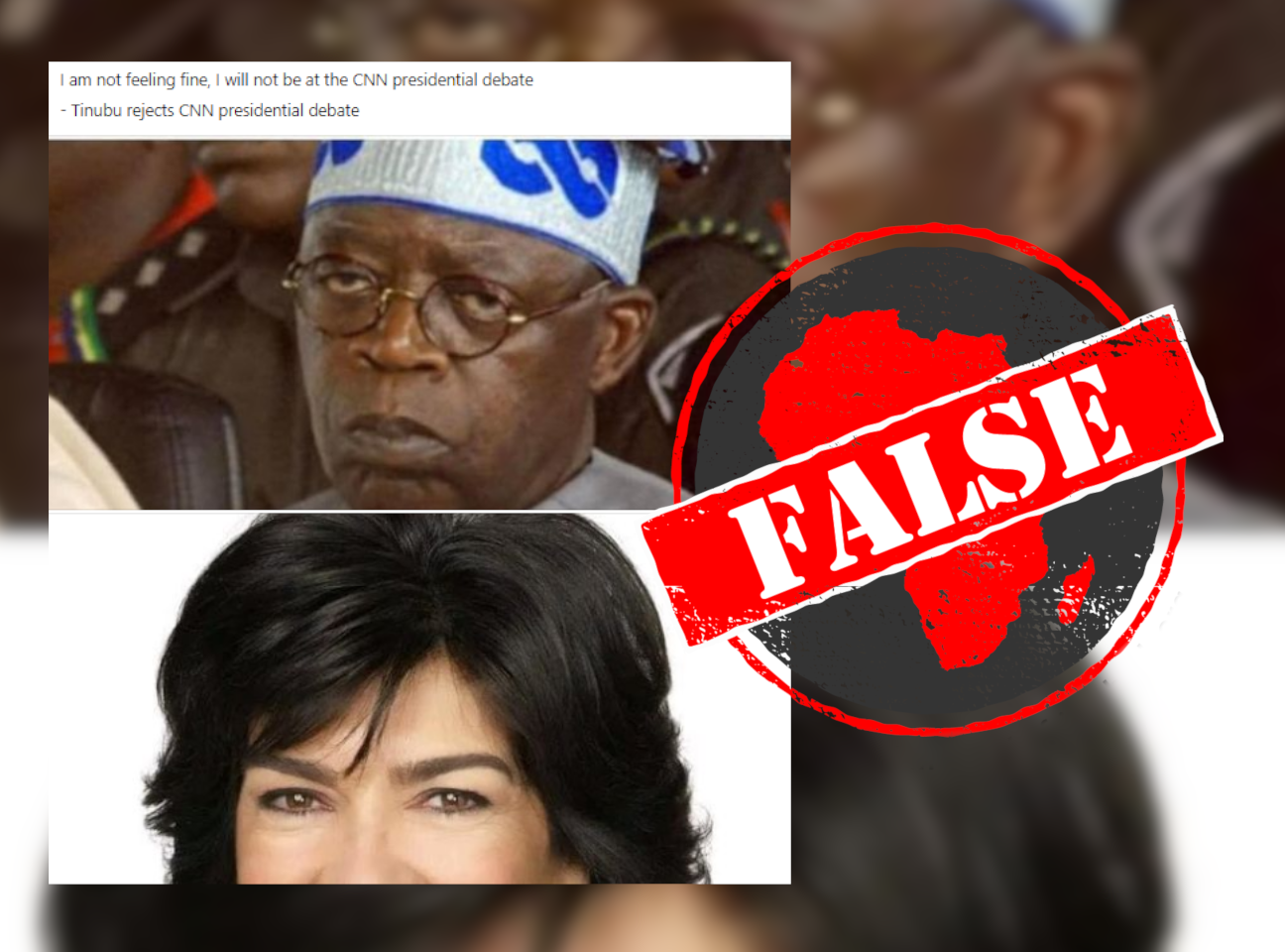A post published on Facebook in Nigeria claims Bola Tinubu has said he won’t be attending a presidential debate organised by media organisation CNN International due to ill health.
Tinubu is the presidential candidate for the All Progressives Congress in Nigeria’s 2023 general elections.
The 15 July 2022 post reads: “I am not feeling fine, I will not be at the CNN presidential debate - Tinubu rejects CNN presidential debate.”
We found similar claims on Facebook here, here and here.
But did Bola Tinubu make this comment? We checked.

No evidence of statement
The Facebook post gives no details of when and where Tinubu is alleged to have made the statement.
A search through Tinubu’s verified Twitter handle and his website returned no evidence of the statement.
Also, there were no reports of this statement in credible local and international news media, which would have been the case if it were true.
CNN hasn’t hosted election debates since starting in Nigeria in 2016
CNN launched a multi-platform operation in Lagos, Nigeria in 2016, but had not yet held a presidential debate for Nigerian presidential candidates at time of writing.
Further checks on the CNN website and Twitter handle about any such scheduled debate returned no results.
Also, election debates are held within the official campaign window as stipulated by the country’s Independent National Electoral Commission. Political campaigns for presidential and national assembly elections will officially start on 28 September 2022 and end on 23 February 2023.
A Nigerian presidential debate being hosted by CNN would have been widely reported by local and international media if it were true.
Republish our content for free
For publishers: what to do if your post is rated false
A fact-checker has rated your Facebook or Instagram post as “false”, “altered”, “partly false” or “missing context”. This could have serious consequences. What do you do?
Click on our guide for the steps you should follow.
Publishers guideAfrica Check teams up with Facebook
Africa Check is a partner in Meta's third-party fact-checking programme to help stop the spread of false information on social media.
The content we rate as “false” will be downgraded on Facebook and Instagram. This means fewer people will see it.
You can also help identify false information on Facebook. This guide explains how.


Add new comment